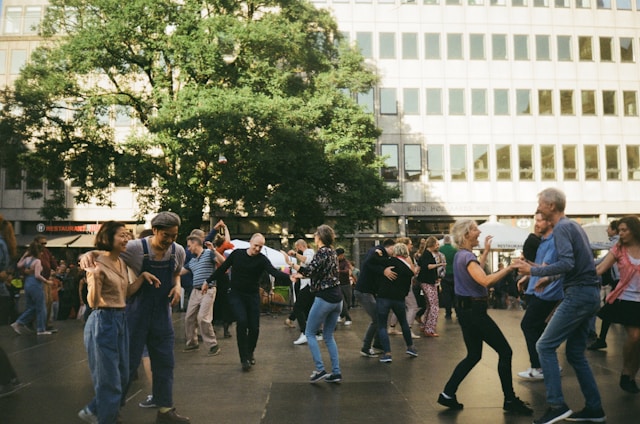
When it comes to treating depression, the arsenal of options often feels limited and daunting. From costly therapy sessions to the complex maze of antidepressant medications, the journey to wellness can be arduous. But what if there was a simpler, more accessible solution? Recent Australian research suggests that exercise might just be the game-changer we've been seeking. In a groundbreaking study encompassing over 14,000 individuals, Australian researchers have uncovered compelling evidence that certain types of exercise can outshine antidepressants alone. Let's delve into the findings and explore how exercise could revolutionise depression treatment.
Key Findings
The study compared various exercise modalities and their efficacy in treating depression. Surprisingly, it was discovered that the frequency of exercise mattered less than its intensity. Whether it's a brisk walk, a yoga session, or hitting the weights, the more vigorous the activity, the greater the benefits. This revelation challenges conventional wisdom and underscores the transformative power of physical exertion in combating depression.
Which Activities Are Most Effective?
Among the array of exercises examined, walking or jogging, yoga, and strength training emerged as frontrunners, rivaling the effectiveness of cognitive behavioral therapy and surpassing antidepressant medications. Moreover, the study delved into gender and age-specific preferences, revealing that yoga and qigong may be more beneficial for men, while strength training is optimal for women. Dance, with its blend of social interaction, vigorous movement, and uplifting music, also showed promise in alleviating depressive symptoms, especially among young women.

Frequency and Intensity
Contrary to conventional guidelines, the study found that the duration and frequency of exercise didn't significantly impact its efficacy. Whether it's a few short bursts or longer sessions, the key lies in the intensity of the activity. Additionally, engaging in exercise alongside others amplifies its therapeutic effects, highlighting the importance of social support in the journey to wellness.
Implications
These findings hold profound implications for both patients and healthcare providers. Exercise emerges not just as a supplementary treatment but as a cornerstone in the fight against depression. With its accessibility, affordability, and minimal side effects, it offers a beacon of hope for those navigating the complexities of mental health challenges. Healthcare professionals are urged to consider exercise prescriptions alongside traditional therapies, recognizing its potential to transform lives.
What is depression?
Depression is more than just feeling sad—it's a complex and debilitating mental health condition that can profoundly impact your thoughts, emotions, and behavior. It goes beyond temporary fluctuations in mood and can make even the simplest tasks feel overwhelming. Depression affects how you perceive yourself and the world around you, often leading to feelings of worthlessness, hopelessness, and despair. It can manifest in a variety of symptoms, including persistent sadness, loss of interest in activities, changes in appetite or weight, sleep disturbances, fatigue, difficulty concentrating, and thoughts of death or suicide.
The causes of depression are complex and multifaceted, involving a combination of genetic, biological, environmental, and psychological factors. Traumatic life events, chronic stress, imbalances in brain chemistry, and certain medical conditions can all contribute to the development of depression.
It's important to remember that depression is not a sign of weakness or personal failure. It's a medical condition that requires treatment and support. By understanding the various types of depression and their underlying causes, we can better support those who are struggling and work towards breaking the stigma surrounding mental illness.
Symptoms of depression
Everyone's experience with depression is unique, but there are common signs and symptoms to be aware of. These can include withdrawing from social activities and relationships, struggling to concentrate on tasks, feeling overwhelmed or emotionally numb, experiencing persistent negative thoughts, and battling constant fatigue.
Depression isn't just a temporary mood—it's a pervasive condition that can affect every aspect of your life. It's like carrying a heavy weight on your shoulders, making even the simplest of tasks feel like monumental challenges.
However, it's essential to recognize that help is available and that you're not alone in your struggle. Seeking support from friends, family, or mental health professionals can be the first step towards healing and recovery
Types of depression
Depression isn't a one-size-fits-all condition. There are various types of depression, each with its own unique characteristics and symptoms. Major depressive disorder (MDD), also known as clinical depression, is the most common form of depression and is characterized by persistent feelings of sadness, hopelessness, and worthlessness.
Persistent depressive disorder (PDD), or dysthymia, involves milder but long-lasting symptoms of depression that can persist for years. Bipolar disorder, on the other hand, involves alternating periods of depression and mania or hypomania.
Seasonal affective disorder (SAD) is a type of depression that occurs at a particular time of year, usually in the winter months when there's less natural sunlight. Postpartum depression affects new mothers and can occur shortly after giving birth, while psychotic depression involves severe depressive symptoms accompanied by psychotic features such as hallucinations or delusions.
Closing Note
In a world where depression casts a long shadow, exercise emerges as a beacon of light, offering solace and empowerment to those in need. With its myriad benefits and adaptable nature, it transcends barriers, providing a pathway to healing and resilience. As we embrace the paradigm shift in depression treatment, let us harness the transformative power of exercise to pave the way for brighter tomorrows.
And remember, you can browser our website to offer a wealth of opportunities to discover local walking groups, hiking groups, badminton social groups, tennis socials, and much more, providing invaluable support and camaraderie on your journey to wellness.
If you or someone you know is struggling with loneliness or feeling isolated, there are organizations ready to offer support and lend a listening ear. Remember, prolonged feelings of loneliness or isolation might be a sign of something more serious, like depression. Don't hesitate to talk to your doctor, a counselor, or reach out to organizations like Kids Helpline, Beyond Blue, or Lifeline for additional support and guidance. You're not alone, and help is available whenever you need it.
- Kids Helpline — call 1800 55 1800
- Beyond Blue — call 1300 22 4636
- headspace — call 1800 650 890
- ReachOut.com (youth mental health service)
- MensLine Australia (men only) — call 1300 78 99 78
- SANE Australia — call 1800 18 7263
- Lifeline — call 13 11 14
- Suicide Call Back Service — call 1300 659 467
- FriendLine - 1800 424 287
Sources
- Effect of exercise for depression: systematic review and network meta-analysis of randomised controlled trials - https://www.bmj.com/content/384/bmj-2023-075847
- Beyond Blue: What is depression - https://www.beyondblue.org.au/mental-health/depression
Sources
- Effect of exercise for depression: systematic review and
network meta-analysis of randomised controlled trials
Published in The British Medical Journal (BMJ)
https://www.bmj.com/content/384/bmj-2023-075847
- What is Depression?
By World Health Organisation
https://www.who.int/news-room/fact-sheets/detail/depression/
- Prevalence and impact of mental illness in Australia
By Australian Insitute of Health and Welfare
https://www.aihw.gov.au/mental-health/overview/prevalence-and-impact-of-mental-illness






